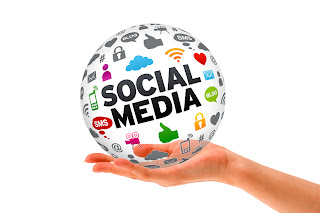For
the purpose of this paper, I decided to explore blogs and how not only writing but also what
is understood as journalism, has changed due to the techno-culture we live in.
In Jenkins’ article, he demonstrates the way in which democracy in the 21st
century has changed as a result of participatory culture. Blogging has been an
effective medium through which citizens participate in democracy by expressing
their concerns, and challenging the mainstream media. Unfortunately, this new
form of writing has often been discounted to amateur writing because of its
“web-nature”. Some scholars such as Jay Rosen, argue that journalism should not
be limited to “professional” journalists who write for mainstream-newspapers. Journalism, he states is a skill of
writing and can happen on any platform, blogs being the current platform. Furthermore, this form of journalism is a way of
bringing power back to the people. In Struggle Against Forgetting, Professor Carey reminds his students of
where journalism began and for what purpose. This demonstrates how blogs are an
example of true journalism, writing “in the name of a wider social contract, in
the name of the formation of a genuine public life and a genuine public opinion”.
In Blogging Outloud: Shifts in
Public Voice, Boyd
discusses the fundamental reasons for blogs.
She states that blogs aren’t written for publishing purposes but rather
for communication ones. People write blogs to share information and to share a
piece of themselves through their posting. Blogs do not have restrictions with
regards to content, and represents a safe environment for conversation. It can
be said that blogs emulate the public sphere
through facilitating discussion of relevant public issues. Moreover, the
Internet offers anonymity providing equality for the participants, which is a
known criteria of what consists of a public sphere.
Just like there
are “bad” journalists, there are “bad” blogs, however implementing a system to
restrict the “bad” blogs would defeat the whole purpose of why blogs exist. Nonetheless,
there are many blogs that have been recognized for the work they produce. The
key to writing a good blog regardless of the subject is research. The
misconceptions with blogs are that they are not credible sources of
information—which is not always the case. Rebecca Blood argues that good bloggers research
information just as much as “professional” journalist do. Sometimes, blogs
deliver better stories than the mainstream because they are able to display an
outside of the box perspective because they have no publisher to please.
Regular people
are breaking news and sharing their information through
such mediums quicker than the news can. This
demonstrates that people are taking matters into their own hands as a result of
the digital culture we live in. This change is being recognized by the mass
media, and traditions are changing. For example, news stations now have blogs,
twitter accounts and Facebook pages. People are spending more time on these
platforms, therefore by integrating themselves into it they not only
participate but they can observe and receive information from the
audiences—which works to their advantage. Traditional media is threatened
because now there is more than one message being spread around and that
decreases their power.






